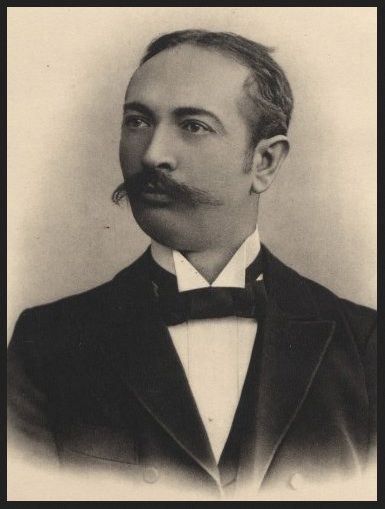Józef Piłsudski in German prisons

Magdeburg, 23rd August 1917 to 8th November 1918
On August 23rd 1917 Piłsudski was moved to Magdeburg and housed in a one-storey wooden house with a small garden. After the destruction of the fortress the city ordered the house to be handed over to Poland, where it was rebuilt in the Belvedere Park in Warsaw. Although it survived the war, it later fell into disrepair.
Conditions here were much better than in the Spandau fortress. Piłsudski moved into the first floor, where he was given two rooms. He quickly established an orderly daily routine, even though he did not have many opportunities to organize his time actively. In a somewhat ironic letter to his family he described his everyday life as follows:
“I get up at 7:30, I have breakfast at 8:00, I go for a walk in the garden at 9:00. I am not bound to any timetable and I am allowed to choose my own time in the fresh air. I usually spend two to two and a half hours outside, so that I am back in my cell after eleven o'clock and read newspapers and books until noon. I don't have many of the latter. At 12.30 pm we have lunch, a relatively lavish one, at least more so than what I got in Warsaw. The most pleasant time follows after lunch: I drink my own tea, which I brew myself. This is the warmest moment in the room (it was December and the cell warmed up only briefly, after which the piercing cold returned], so I start dreaming. With a cigarette and a good tea your thoughts soon meander far and wide. Since such a state is unhealthy if it lasts a long time, I move on to the more serious part of the day: the chess studies that take up a few hours. In the twilight I walk up and down in the room and when the light comes on, I stop chess to read and write. We have dinner at 6:30, and it's not bad. After that, to spare my eyesight, I no longer work, but rather, with various motivations, play innumerable games of patience. I often interrupt this sophisticated activity in order to stretch my legs in the room. At ten o'clock in the evening I go to bed. I fall asleep easily and thus I end my busy working day.”
In 1918, the prisoner was allowed to go into town in the presence of a guard to see a doctor. Piłsudski suffered from heart pain and rheumatism. In his letters he also complained about his poor mental state, a consequence of inaction and isolation. Members of his family were not allowed to visit him because the authorities refused to grant them a travel permit. During his internment Piłsudski heard about the birth of his daughter Wanda: but only after some delay, because the telegram was deliberately withheld from him. He often wrote to the child's mother, his future wife Aleksandra Szczerbińska. After his release it transpired that she had received only a handful of these letters. Moreover, her living conditions were difficult. She worked in the administrative department of a company that dried vegetables and was forced to return to work just a few days after giving birth.




![Flyer to protest against the illegal internment of Piłsudski, 1917 Flyer to protest against the illegal internment of Piłsudski, 1917 - Flyer: On Sunday 29th of this month we will gather in front of the Adam Mickiewicz Monument at 11 am to protest against the illegal internment of Commander Józef Piłsudski and Chief of Staff of the First Brigade, Lieutenant Colonel [Kazimierz]. Sosnkowski](/sites/default/files/styles/width_100_tiles/public/assets/images/obywatele-obywatelki-inc-dnia-29-bm-w-niedziele-zbieramy-sie-o-godz-11-rano-na-0_kopie.jpg?itok=hxoxe_Lq)














































